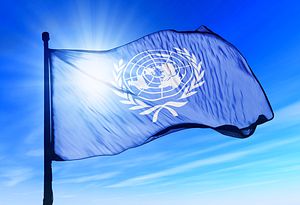In the category of breaking news that will surprise exactly no one, China has officially rejected a UN commissioned report on human rights abuses in North Korea. The report accused the Kim regime of policies encouraging or directly leading to abuses ranging from murder and torture to starvation and persecution, and recommended that charges be brought against North Korean leader Kim Jong-un and others in the International Criminal Court. At the time, I (along with many others) pointed out that Beijing was certain to veto any such attempt as it would violate two of China’s core interests: keeping the Kim regime propped up for the sake of stability in North Korea, and preventing international action to punish human rights offenders (as China has its own issues with Western human rights activists).
Now China has officially come out against the UN report. Monday was the day the UN Human Rights Council was scheduled to discuss the report about human rights abuses in North Korea. During the session, Chinese counselor Chen Chuandong made it clear that China does not accept the report and will not support taking any action against North Korea. Chen called the report’s contents into question, and said the accusations are unfounded. Ironically, according to Chen, the report should be considered invalid in part because North Korea refused to cooperate with the commission. “The inability of the commission to get support and cooperation from the country concerned makes it impossible for the commission to carry out its mandate in an impartial, objective and effective manner,” Reuters quoted Chen as saying. Chen also said that the report’s recommendations, including charging Kim with crimes against humanity, were “divorced from reality.”
The UN Human Rights Council’s own news brief on the discussion also included an objection (attributed to unnamed “speakers”) that closely echoes Beijing’s traditional dismissal of human rights investigations: “Speakers rejected the use of human rights as a means of interfering in the internal affairs of States using selective mechanisms and double standards to deal with human rights.” According to this view, any prosecution for alleged human rights abuses in North Korea would constitute “interference” into Pyongyang’s “internal affairs” and cannot be countenanced.
Michael Kirby, the chair of the commission that authored the report, addressed some of these counter-accusations (which have also been raised by North Korea itself) in a statement before the Human Rights Council. “The Commission does not ask anyone to believe blindly what we say,” Kirby said, encouraging anyone with doubts to explore the witness testimonies for themselves. As for the charge that the commission did not cooperate with North Korea, Kirby pointed out that “All of our efforts to initiate dialogue and to offer cooperation have been spurned by the Democratic People’s Republic of Korea.”
The majority of the UN Human Rights Council seemed to agree with Kirby that lack of cooperation from North Korea was another reason to be concerned about the human rights situation inside North Korea, rather than a reason to dismiss the report. According to the UN Human Rights Council news brief, during the discussion, “The absence and non-willingness of the Government of the Democratic People’s Republic of Korea to cooperate with the Commission, including preventing access of members of the Commission into its territory, was also noted with concern.”
Kirby mostly used his statement to reiterate the commission’s grave concern about conditions in North Korea. Kirby compared the situation to a series of atrocities throughout the 20th century, from Nazi concentration camps to South African apartheid to the murder and abuse perpetrated by the Khmer Rouge. Kirby reminded the council that, after each of those tragedies, “the world said never again”—yet such atrocities continued. He urged the UN to make good on its promise by holding North Korea responsible for human rights abuses. “These are the ongoing crimes against humanity happening in the Democratic People’s Republic of Korea, which our generation must tackle urgently and collectively,” Kirby said. “The rest of the world has ignored the evidence for too long. Now there is no excuse, because now we know.”
He continued: “If the Human Rights Council is not the place to speak up about the atrocities that we have been told of, or to speak about accountability, then where is the venue? Is there any venue? Or is the world to continue to look the other way?”
Sadly, China’s response to the report seems to indicate that yes, the world should continue to look the other way. By dismissing the commission’s report, Beijing effectively dooms any collective action by the UN to hold Pyongyang accountable for the documented abuses.

































